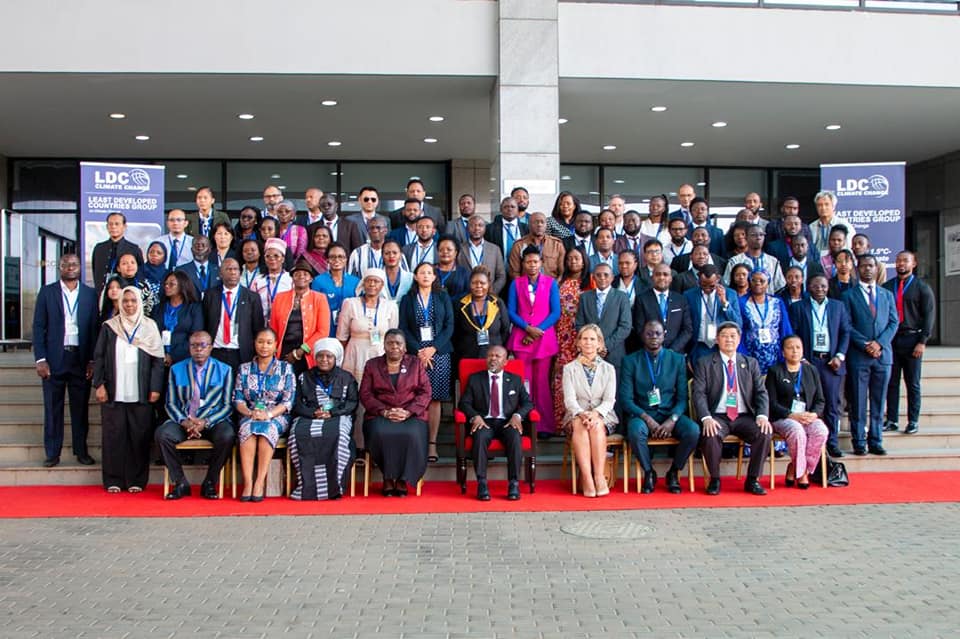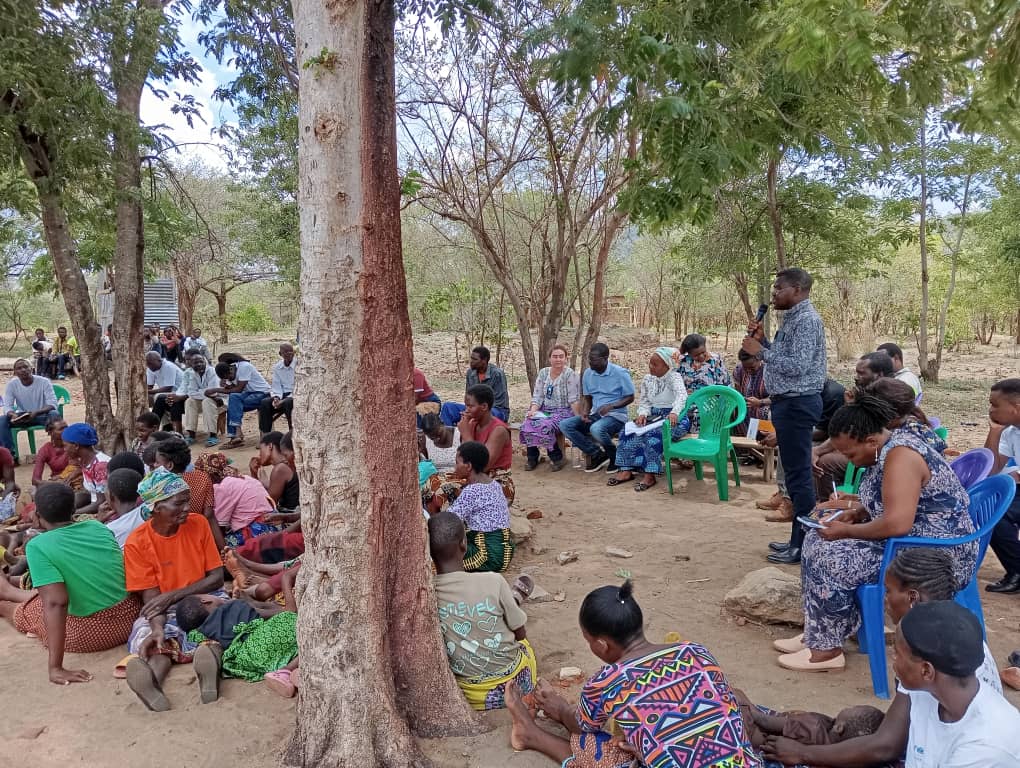MALAWI HOSTS LDCs GROUP ON CLIMATE CHANGE STRATEGY AND MINISTERIAL MEETINGS

Malawi, as chair of the Least Developed Countries (LDC) Group on Climate Change, was honoured to host the LDC Strategy Ministerial Meetings at Bingu Wa Mutharika International Convention Centre in the capital, Lilongwe from August 26 to August 28, 2024.
This was a crucial and timely gathering that brought together high-level representatives, including ministers, climate negotiators, and experts from all 45 LDCs to review progress in international climate negotiations, strategize on a number of critical climate issues and develop a unified agenda that should strengthen the LDCs negotiating stance to ensure impactful engagement to unlock climate financing at COP29 in Baku, Azerbaijan later this year.
The LDC Strategy and Ministerial meetings were held under the theme: “Uniting for 1.5°C – Aligned Climate Action and Resilient Futures.” Dr. Yusuf Mkungula, Secretary for Natural Resources and Climate Change opened the Strategy meeting which run for two days from August 26 while Dr. Michael Usi, the Vice President of the Republic of Malawi graced the Ministrial meeting on August 28. The Vice President was accompanied by the Minister of Mining, Honourable Monica Chang’anamuno, senior government officials from several ministries including the Ministry of Natural Resources and Climate Change, Ms. Fanella Frost, the UNDP Malawi Resident Representative, and Mr. Evans Njewa, the Chairperson of the LDC Group on Climate Change.
Opening the Strategy meeting which mainly comprises climate negotiators and technical experts, Dr. Mkungula emphasized the importance of the gathering as it provided a forum for the group to come up with a unified voice which is crucial in shaping international climate policies and negotiations.
He later told the press that the LDC group was looking forward to new, predictable, scaled up, and accessible financing for implementing climate change adaptation, mitigation programs and loss and damage.
Speaking during the opening of the Ministerial Meeting, vice-president said the Least Developed Countries including Malawi disproportionately bear the burden of climate change despite contributing minimally to global emissions.
“Let’s work together to have our story heard. We are adversely experiencing the impact of climate change yet we contribute minimally to global emissions.” Dr. Usi who is also Minister responsible for Natural Resources and Climate Change told the meeting.
He urged the LDCs to be at the forefront of climate negotiations and their voices should resonate with the strength and conviction that befit grouping unique challenges and aspirations.
“Our deliberations here must go beyond rhetoric and pave the way for concrete, actionable strategies that prioritize the needs and aspirations of the most vulnerable among us,” he said.
The vice-president said it was imperative that LDCs collectively advocate for the mobilization of financial resources, technology transfer, and capacity-building initiatives that empower nations to not only adapt, but also to thrive in the face of climate-related challenges.
Malawi assumed the Chairmanship of the Least Developed Countries (LDCs) group, taking over from the Republic of Senegal and Mr. Evans Njewa, the Deputy Director responsible for Climate Change in the Environmental Affairs Department is the Chairperson of the group on behalf of the Government of Malawi while the Director of Environmental Affairs, Ms. Tawonga Mbale-Luka is Malawi’s United Nations Framework Convention on Climate Change (UNFCCC) Focal Point.
Meanwhile, through the Malawi Environment Protection Authority (MEPA) is in the process of developing the next National State of the Environment and Outlook Report that will provide a comprehensive assessment of the environmental landscape and challenges for Malawi.
The report will cover a number of areas like Air quality, biodiversity, land, freshwater, Pollution, waste management, land degradation and impacts of climate change, among others.


